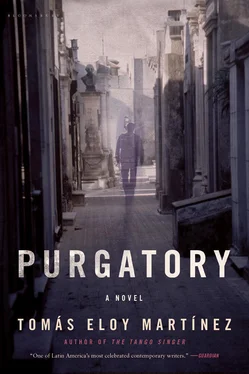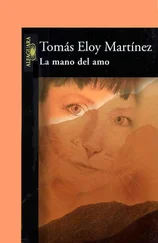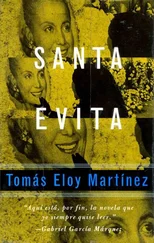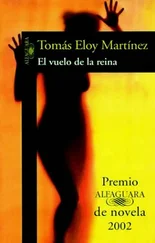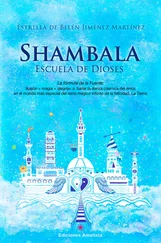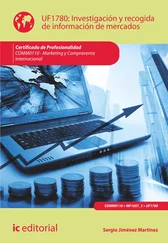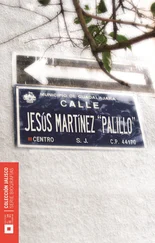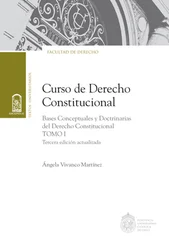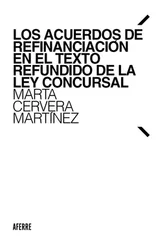Tomás Eloy Martínez - Purgatory
Здесь есть возможность читать онлайн «Tomás Eloy Martínez - Purgatory» весь текст электронной книги совершенно бесплатно (целиком полную версию без сокращений). В некоторых случаях можно слушать аудио, скачать через торрент в формате fb2 и присутствует краткое содержание. Год выпуска: 2008, Издательство: Publishing PLC, Жанр: Современная проза, на английском языке. Описание произведения, (предисловие) а так же отзывы посетителей доступны на портале библиотеки ЛибКат.
- Название:Purgatory
- Автор:
- Издательство:Publishing PLC
- Жанр:
- Год:2008
- ISBN:нет данных
- Рейтинг книги:5 / 5. Голосов: 1
-
Избранное:Добавить в избранное
- Отзывы:
-
Ваша оценка:
- 100
- 1
- 2
- 3
- 4
- 5
Purgatory: краткое содержание, описание и аннотация
Предлагаем к чтению аннотацию, описание, краткое содержание или предисловие (зависит от того, что написал сам автор книги «Purgatory»). Если вы не нашли необходимую информацию о книге — напишите в комментариях, мы постараемся отыскать её.
"Purgatory" narrates the anxiety of the love lost and then found in a magnificent reconstruction of the sinister events that went down in the time of the regime in Argentina.
Purgatory — читать онлайн бесплатно полную книгу (весь текст) целиком
Ниже представлен текст книги, разбитый по страницам. Система сохранения места последней прочитанной страницы, позволяет с удобством читать онлайн бесплатно книгу «Purgatory», без необходимости каждый раз заново искать на чём Вы остановились. Поставьте закладку, и сможете в любой момент перейти на страницу, на которой закончили чтение.
Интервал:
Закладка:
The following day, Nancy Frears insisted on seeing me; she asked me to come by her apartment on Montgomery Street. The minute I walked through the door, she threw herself into my arms and started sobbing. ‘Where can poor Millie have gone? Have you heard anything?’
‘Nothing,’ I said.
‘I don’t know anything either. I drop by the chief of police’s office as often as I can. No one there wants to say anything, but you get to hear things around town. If you were a woman, you’d understand. You hear people gossiping at the salon, in the drugstore, over at Jerusalem Pizza. They say someone saw her on the street talking to herself, dressed up like she was going to a party. Someone saw her on Saturday morning at dawn taking the train to Newark. What would she be doing up at that hour? Her car still hasn’t turned up. They’ve issued a description of the car and the licence plate to all the toll routes and hotels for two hundred miles. All the patrol cars have the details too, of course. We should get some news soon. She has to eat, to sleep, to take a bath. Can you wait a minute? I need to go to the bathroom. It’s my stomach, I get gas, you know. Never gives me a minute’s peace.’
She reappears with a file of clippings. Emilia gave them to her to look after a while ago and she shows them to me to see if I recognise anything. I see the pamphlet again, the samples of Stabilene film which cartographers carried with them everywhere thirty years ago. Inside the pamphlet I see a copy of the ‘Rules concerning the making of cartographic documents for the Automobile Club’ typed on an old-fashioned typewriter. I don’t stop to read it since the predictable articles in it have long since expired. What surprises me is the carefully hand-drawn page at the end. On it there are three squares splitting off like tree branches from a central square. Each space is filled with elegantly calligraphed text. One of them reads: ‘Choice and selection of the nomenclature for the colour blue’, and the uppermost square reads: ‘Rough sketch to scale of Ruta 77 as far as the Abra River’. I assume that it is Simón’s handwriting, large, meticulous well-spaced letters. If Simón did write it, it would explain why Emilia has treasured this useless, yellowing scrap of paper all these years. Or perhaps she keeps it because it is the last vestige of his contact with the world: this sheet of paper, his fingerprints on the steering wheel of the jeep, the sketch of the Río El Abra that was taken from them in Huacra, the tremulous signature on the prison register. As I touch the sheet, I barely feel it, it is as though the paper is air; of course I know that my senses are gradually disappearing, I know that my eyesight is failing, that my ears hear only what they want to hear: Kiri Te Kanawa singing Mozart’s Mass in C Minor, the voices of my sons, Keith Jarrett playing the piano, the murmur of snow as it falls.
I don’t say this to Nancy, but sometimes I think Emilia’s senses also disappeared and that is why she is not here. Our senses constantly feed our memory, and beyond that memory there is nothing. The body enters into a continuous present in which pass, one by one, all the seasons of the joys that went unlived.
5. Fame is nothing but a breath of wind
‘Purgatorio’, XI, 100
I open the cuttings file Nancy Frears gave me and notice that some of them are missing. I know that when she gave it to me there were photos of Emilia with her father at the funeral of the film director Leopoldo Torre Nilsson and at a gala given by the comandantes for the king and queen of Spain, but I’m confusing what I see with the things Emilia told me. There are many ant trails in my memory and on this point all of them seem to get entangled. I call one of my doctors and ask if these distractions mean anything. ‘We’ll know if there’s any need to worry after we’ve examined you. Are you writing?’ he asks. ‘Yes,’ I tell him, ‘a novel.’ ‘In that case, be careful. It’s your imagination that’s making you ill.’ I go back home, and start going over the papers and the notes I have collected.
I started at the end: with the photograph of Dr Dupuy taken in the main studio of Canal 7 during the twenty-four-hour benefit programme in aid of the soldiers fighting in the Malvinas. It is date-stamped in the top right-hand corner, May 20, 1982, with the time, 23.12. Emilia watches from a distance as her father comes onto the set. It looks to me as though at any moment she might turn her back on him. She finds it difficult to hide her hostility, her displeasure. They have not lived in the same house now for three years, and I know that Emilia would have left Buenos Aires if an increasingly slender umbilical cord did not tie her to her mother, whose body is now little more than a sigh. I don’t have the dates clear in my head, but I think I remember that Ethel Dupuy died shortly after the programme: she left this world as suddenly as she had entered it. Emilia told me she was cremated in a private, almost secret ceremony and that she herself, ‘just me, no one else’, scattered her ashes in the Río de la Plata, its waters swollen with all the dead.
In the photo, you can see the programme’s presenters in the background: they sit pensively on plastic chairs. I suppose they are charged with keeping alive the patriotic fervour the dictatorship has whipped up in the populace to mask the poverty, the inflation, the sense of imminent ruin. At the start of that year, the comandantes of the junta, feeling the country slipping through their fingers, grasp desperately for a lifeline: they invade the icy islands, send soldiers trained in the tropics of the Argentinian north-east where cold is unknown. Those in power are different now, the successors to the admiral and the Eel, though their imaginations are still bleak, empty horizons. The British fleet is on the far side of the world and no one expects them to take the trouble to defend a few shitty rocks inhabited by nothing but cormorants and wind, wind and 2,200 of Her Majesty’s subjects, melancholy penguins and wind. Against all expectations, the English launch a counter-offensive; Dupuy calculates that, within eight to ten weeks, defeat is inevitable. Even so, he wants the new comandantes to stay at the tiller until the state has weathered the storm. They need to stand firm — but how? When they are as stupid as all the others, as blind to everything that is not white and red and yellow? The stupidest of them are still stealing orphans from hospitals, snatching babies from the wombs of women in labour. There are still many gullible enough to see the country only as the happy, world-beating country depicted by the biddable media. Talk about our crushing victories in the air and on the sea, Dupuy instructs them. Show them photographs of pitiless, corrupt British soldiers. Show them Thatcher with fangs like Dracula. Run the headline: we’re winning! People are celebrating our armies’ victories, pouring into the streets wearing armbands, waving flags just as they did during the 1978 World Cup. Our onslaughts are lethal, the newspapers repeated in unison. Thatcher, they said, is running scared. Professor Addolorato uttered dirges on Spanish radio stations which Dupuy was forced to republish in La República : ‘My poor country is fighting an unequal battle against the third largest power on the planet, supported by American imperialists. The Argentina waging this war is not what the ignorant and ill-informed call the military dictatorship. No, all of Argentina is locked in this struggle: its women, its children, its old people.’ An eloquent opportunist, Dupuy is forced to concede. The British leak the news that Argentinian soldiers are falling at the front without even defending themselves, not from heroism or from enemy shrapnel but because they’re dying of cold. They have little ammunition, their rations of food have run out. Dupuy announces that he is going to launch a huge appeal for solidarity. Live on the same television channels that broadcast the World Cup, the greatest artists and celebrities in the nation will take donations: jewellery, money, chocolates, anything and everything, patriotism must be transformed into largesse and, more importantly, into a chorus of praise to the comandantes . He is still inspired by Orson Welles’s lessons in the art of illusion. What a son of a bitch, Welles, he thinks with a mixture of admiration and resentment. The bastard put him in a difficult position with the Eel and the admiral. Shortly after rejecting his offer to direct the documentary that would have heaped praise on it, he mocked Argentina and filmed The Muppet Movie , a pathetic trifle for retarded children. Dupuy has heard that he makes his living falling back on his past as a clown. What he cannot forgive is that it was his voice used in Genocide , a tasteless documentary about the Nazi concentration camps in which, in passing, there is mention of prison camps in Argentina. He had better not dare try to set foot in Buenos Aires.
Читать дальшеИнтервал:
Закладка:
Похожие книги на «Purgatory»
Представляем Вашему вниманию похожие книги на «Purgatory» списком для выбора. Мы отобрали схожую по названию и смыслу литературу в надежде предоставить читателям больше вариантов отыскать новые, интересные, ещё непрочитанные произведения.
Обсуждение, отзывы о книге «Purgatory» и просто собственные мнения читателей. Оставьте ваши комментарии, напишите, что Вы думаете о произведении, его смысле или главных героях. Укажите что конкретно понравилось, а что нет, и почему Вы так считаете.
